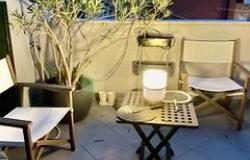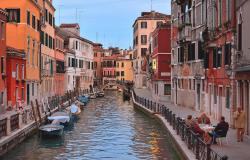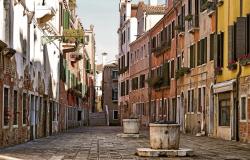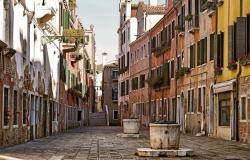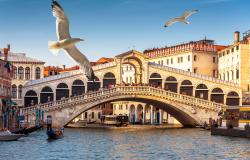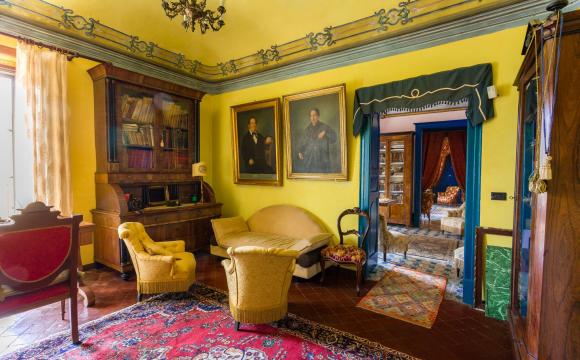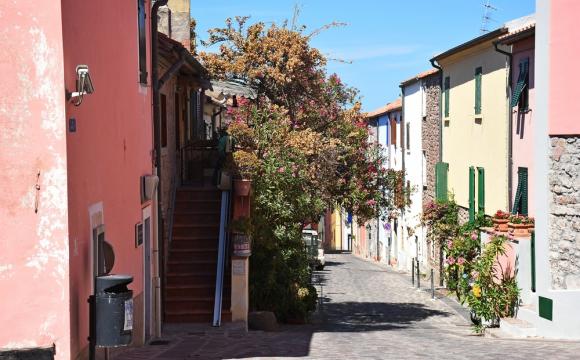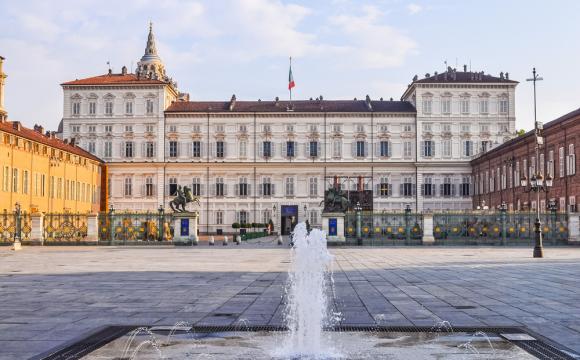As Italy gradually returns to a semblance of normality, how has the virus affected the lives of Italians? Do they believe everything will be as it always has been, or has La Dolce Vita changed for ever?
I’ve been talking to, and corresponding with a random sample of Italians from different walks of life about their thoughts, the difference Covid19 has made to their lives, and how they perceive their futures at work and play.
The Mayor
“Anno bisesto, anno funesto”
“Leap years are years of disaster” was a favourite saying of the Mayor’s grandmother, and this year he feels it could be true.
Massimo Mommolo is the Mayor is of the spa town of Battaglia Terme, not far from the village of Vo which was the first place to be completely cut off when the deadly virus struck. He has strong views about how it has affected his town and its people.
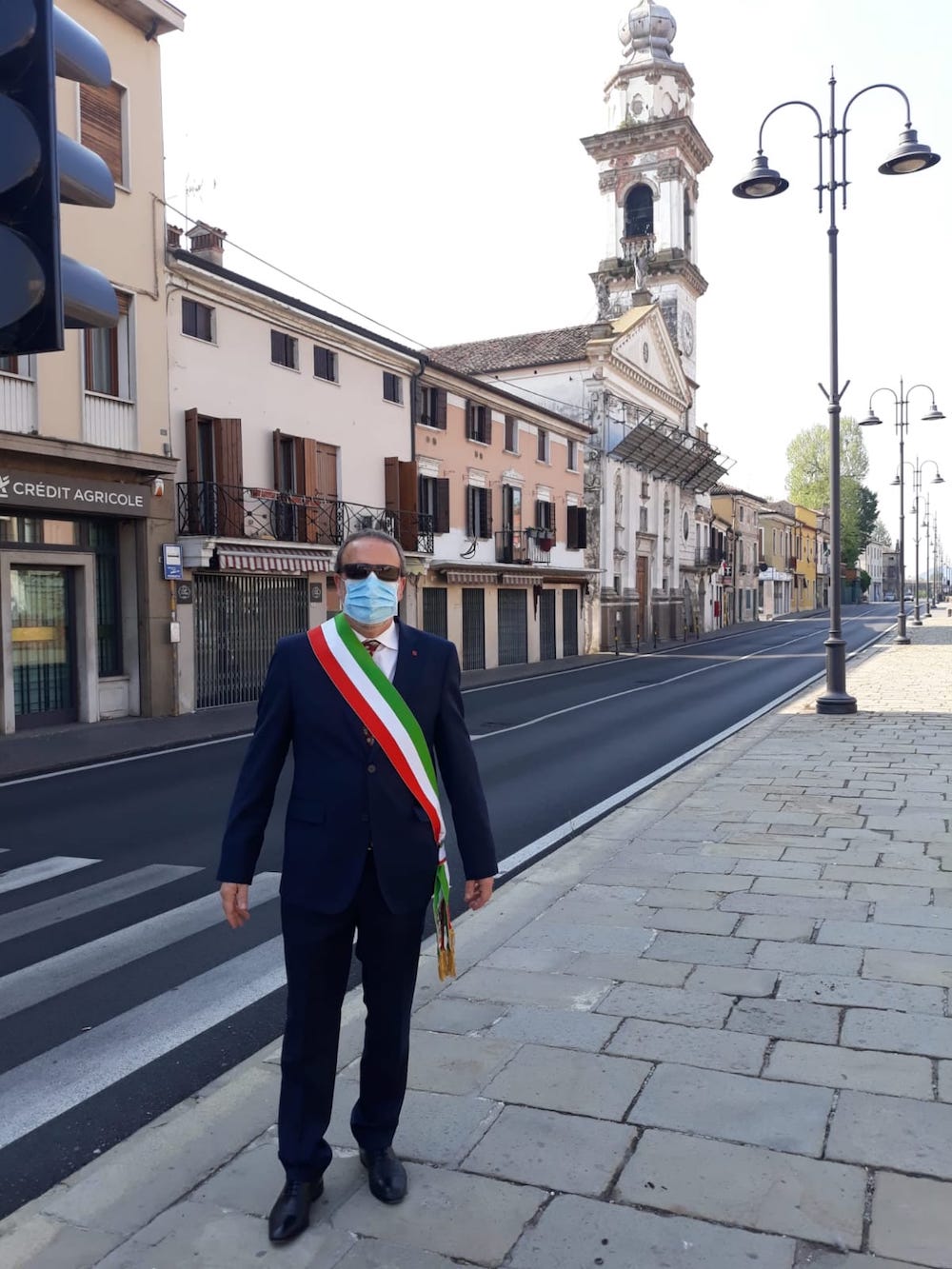
First, with the deserted streets of the shutdown, the unreal silence reminded him of a nuclear catastrophe. He will never forget, he says, the sight of a convoy of military vehicles transporting coffins because there was nowhere at the time to bury the victims. In the context of having had to deal with national and regional cuts in public health, education and welfare, he says he became truly aware and appreciative of the selfless work of doctors and nurses.
He makes a wry observation about the new vocabulary which has entered the language: ‘lo smart working’ and ‘il lockdown’. He feels that things won’t be as they were before. We could come out of this with a better society; more cohesive, less individualistic. But there again, this may not happen: memories are short. He hopes we have learned a lesson.
The Manager of “Viaggiare Curiosi” eco-tourism business
Carmen, a former councillor, made the brave decision a few years ago to set up her own company for promoting sustainable tourism. “The virus changed my springtime but not my life”, says Carmen. “We have survived for two months with our new priority, the family. My business is amongst the first to start again because outdoor activities and sustainable tourism have convinced me that I made the right decision, to guarantee a healthy way to spend leisure time. We have already restarted our guided trekking, bike and ebike rentals for couples and families, which will very soon be open for groups of up to 10 people. The office in Montegrotto Terme also opened this week.”
The Assistant in a Village Pharmacy
Paola lives and works in a small rural village near Monselice. She has never before been so busy, and initially had great trouble finding enough masks and gloves, but now has a new reliable source: masks made by the inmates of Padua prison. They are made to the required standard, and have the virtue of also being washable, which saves money. In the pharmacy they have fitted a new air purifying device on the ceiling, left on day and night, and by only allowing two people in the shop at a time, everything possible is being done for customer safety.
The pharmacy has for several years provided a book exchange (which curiously is known in Italian as a ‘book crossing’) where shelves outside the shop are filled with books which can be exchanged for others by anyone who passes. Each evening Paola now sprays all the books with disinfectant. She is optimistic that the worst is over and things are returning to normal.
Restaurant Owners
Maurizio and Edi have an award-winning restaurant in Umbria. From small beginnings, they have made huge advances, but are now worried that everything they have worked for might be lost. Their tiny trattoria in the village of Baschi near Orvieto was recently upgraded to a larger ristorante/bistrot in Civita Castellana, La Sala Della Comitissa, recognised this year in the Guide Michelin. They have worked so hard for so many years, and deserve success, so we’re keeping fingers crossed.
The Student
Edoardo has found a complete change in his studies at the University of Bologna. He now receives lectures and other teaching on line. To his surprise, he was even able to take an exam online.
Although it is not what he expected, Edoardo thinks upon reflection that the enforced lockdown has greatly improved his computer skills, which will probably help him in the job market in future.
The Doctor
Sandro works in the largest hospital in the Veneto, where Italy’s first case of Covid19 was diagnosed and the patient subsequently was the first to die.
He lives in the outer suburbs with his wife, also a doctor, and three sons, and usually cycles to work, learning English by listening to the Harry Potter books on his headphones. He has made amazing progress, which is why he can describe here in English, in his own words, his most memorable morning of the lockdown.
“It was 3 am. I had to go quickly in hospital. When I opened the door and I put a step outside I had been hit by the silence. No voices (obviously), no cars, no animal sounds, no wind. Very impressive. I've never listened to such a silence in my life. Unfortunately, after a few instants my car broke the enchantment.”
The Older Generation
My conversations with older friends and neighbours all had one thing in common: a reluctance to talk about their experiences. I think the effects of the virus were too immediate and distressing for most people, with loved ones now gone, and many others who had been very ill.
The Librarian
“When the coronavirus situation in Italy started to get worse in late February, the U.S. Army installation mirrored the Italian government and closed all schools and childcare facilities. As the working mother of a baby boy born in November, I had to scramble to find a way to continue working without the support of the daycare I had been using. This was definitely an exercise in time management! My work, as the Public Services Librarian at the U.S. Army Garrison Italy, is normally filled with physical interactions--children's story times, teaching newcomers about our resources, and handling books, DVDs, and other materials.
Although our Library has been closed since early March, we continue to provide online resources for our patrons. But I know that the families and soldiers who rely on our facility and services have been missing the Library a great deal. Re-opening will be a challenge as well - small children are not willing participants’ in social distancing!
It was devastating to see the coronavirus situation unfold in Italy, and the restrictions were especially challenging for my widowed mother-in-law, who was isolated in her home in another commune.
However, the quarantine and lockdown gave us an unexpected window to focus on our infant son. We had not anticipated having full days home with him these past months, and even with the conflicts of teleworking, we've been able to dedicate ourselves to him at a crucial time in his development. A bittersweet gift, given all the loss around us.”


